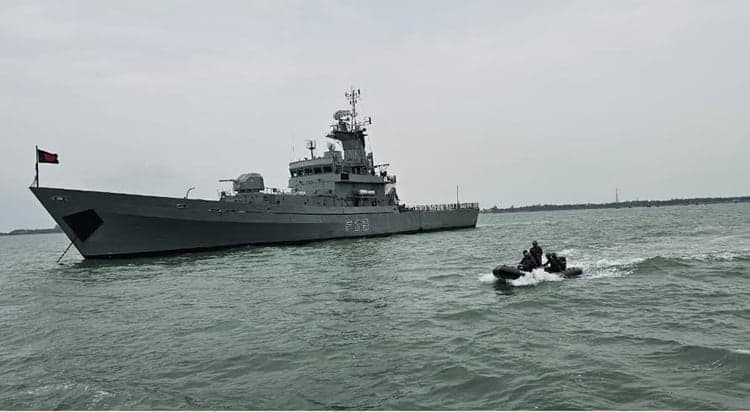Thailand

Women’s football team creates another new chapter
The success of women’s football is now a special topic of discussion among the country’s sports-loving community. The women footballers have ‘earned’ the admiration through their skill on the field. In the country’s football activities, women are far ahead, and therefore this attention is well-deserved. Women have come onto the football field and made the impossible possible. They have proved that on the national stage they are far ahead of the men footballers although they have been held back in the male-dominated sports arena in various ways

Where does Bangladesh stand amidst US's global retaliatory tariffs?
After much negotiation, the United States has agreed to reduce the imposed tariff rate on Bangladeshi goods exported to the US from 35% to 20% during the third round of discussions. On April 2, then-US President Donald Trump imposed 'retaliatory' tariffs on goods from 57 countries—a list that expanded to over 90 by July. Before the new policy was implemented, Bangladeshi exports faced an average tariff of 15.5%. The new 35% hike brought the total to 50%. However, as global economic uncertainty followed the announcement, Trump suspended the new tariffs for three months and allowed countries to negotiate fairer rates.

Rohingya crisis: The maze of repatriation
The Rohingya crisis currently stands as the greatest threat to Bangladesh’s national security and sovereignty. Recently, it has been further complicated by debates over transit corridors and incidents of push-in operations where India has forcibly sent some registered Rohingyas into Bangladesh. In March, UN Secretary-General António Guterres and Bangladesh’s interim government’s Chief Adviser Dr Muhammad Yunus visited Rohingya camps in Cox’s Bazar and gave hopeful messages about repatriating the Rohingyas to their homeland in Rakhine. There were reports that as many as 180,000 Rohingyas might be repatriated to Myanmar. However, those hopes quickly proved unrealistic. Moreover, since the interim government took charge nine months ago, at least 100,000 new Rohingyas have entered Bangladesh. As a result, Bangladesh's burden is increasing, and the issue of Rohingya repatriation is becoming entangled in a complex web of regional and international politics, with no immediate resolution in sight.

State action needed to harness demographic dividend
In the 1980s, the then military dictator General HM Ershad described uncontrolled population growth as the "number one national problem." Although his statement created a stir at the time, it was a completely misleading comment. Population growth, whether planned or unplanned, can never be the number one national problem for a country. Population is an irreplaceable resource. The progress of the world cannot be imagined without it. If population is systematically trained and transformed into a skilled and productive workforce, it becomes the nation's greatest asset. However, if population growth is unmanaged, it becomes a burden for the country. The responsibility of turning the population into human capital lies solely with the state. The state cannot escape the blame for its failure to do so.

Let India-Bangladesh ties be based on justice, not radical beliefs
Let India-Bangladesh ties be based on justice, not radical beliefs

Is BRICS equipped to confront its challenges?
Russian President Vladimir Putin closed the BRICS summit, a bloc of developing economies, in the last week of October. Sanctions from the West have been aimed at cutting off Russia's economy from global markets. The conclave was the largest gathering of world leaders in Russia in decades. The 3-day summit attended by the highest officials of 36 countries was a testament to the West's failure of trying to isolate Russia and Putin globally.

Marine pollution: An alarming threat for South Asian littoral states
Marine pollution on land and in oceans is currently a pressing environmental issue around the globe. The accumulation of waste causes severe, irreversible impacts and consequences on marine life, ecosystems, and the environment due to the lack of good waste collection, treatment, and management systems.

ISPR requests not to get misled by rumours over security of St. Martin’s
Inter Services Public Relation Directorate (ISPR) has urged all not to be misguided by rumours spreading through social media over the security of St. Martin’s island centering Myanmar's ongoing internal conflict near the island.

PM returns home after six-day Thailand visit
Prime Minister Sheikh Hasina returned home on Monday (April 29) wrapping up her six-day official visit to Thailand.

PM returns home from Bangkok on Monday
Prime Minister Sheikh Hasina will return home from Bangkok on Monday wrapping up her six-day official visit to Thailand.

